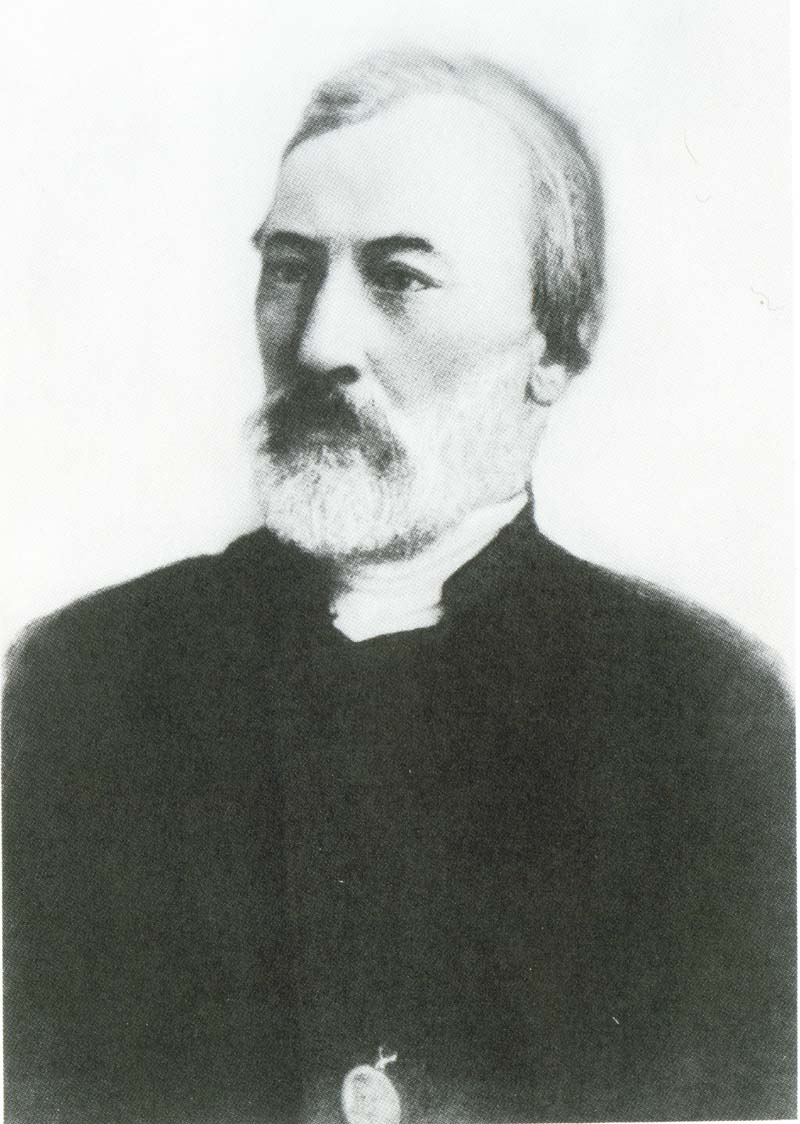Queer Places:
The Holy Trinity-St. Sergius Lavra, Sergiev Posad, Moscow Oblast, Russia, 141300
 Konstantin
Nikolayevich Leontiev (January 25, 1831 in Kudinovo, Kaluga Governorate –
November 24, 1891 in Sergiyev Posad) was a conservative tsarist and imperial
monarchist Russian philosopher who advocated closer cultural ties between
Russia and the East against what he believed to be the West's catastrophic
egalitarian, utilitarian and revolutionary influences. He also advocated
Russia's cultural and territorial expansion eastward to India, Tibet and
China.
Konstantin
Nikolayevich Leontiev (January 25, 1831 in Kudinovo, Kaluga Governorate –
November 24, 1891 in Sergiyev Posad) was a conservative tsarist and imperial
monarchist Russian philosopher who advocated closer cultural ties between
Russia and the East against what he believed to be the West's catastrophic
egalitarian, utilitarian and revolutionary influences. He also advocated
Russia's cultural and territorial expansion eastward to India, Tibet and
China.
Leontiev was born and grew up on his father's estate. His father, a
nobleman, was a military officer but was discharged for "riotous behaviour".
Still, the intervention of the Russian empress in behalf of the Leontiev
brothers made him able to enter the Imperial Corps of Pages. He was engaged at
23 but broke off the relationship for the sake of "freedom and art"" a
decision that made things difficult for him. After completing medical school
in Moscow, Leontiev saw service as a doctor during the Crimean War.
In 1861, he carried off a local Crimean girl, the daughter of a Greek
merchant, from Feodosiya, eventually marrying her.
He later lived in various Ottoman towns as a Russian consular agent,
devoting his leisure time to writing oriental fiction on many themes, some of
which included a condemnation of homophobia and implied that he may have been
bisexual.[1][2]
In the summer of 1871, after praying to the Virgin Mary, he was cured of
cholera and dysentery and promised Her to take monastic vows. Later that fall,
he moved to the Russian monastery on Mount Athos. In 1880, he moved to the
censorship department in Moscow, where he published several acclaimed analyses
of Leo
Tolstoy's novels.
Seven years later, he secretly took the tonsure at the Optina monastery,
famous for its startsy. He died as a monk in the Troitse-Sergiyeva Lavra.
My published books:


BACK TO HOME PAGE

- https://en.wikipedia.org/wiki/Konstantin_Leontiev
 Konstantin
Nikolayevich Leontiev (January 25, 1831 in Kudinovo, Kaluga Governorate –
November 24, 1891 in Sergiyev Posad) was a conservative tsarist and imperial
monarchist Russian philosopher who advocated closer cultural ties between
Russia and the East against what he believed to be the West's catastrophic
egalitarian, utilitarian and revolutionary influences. He also advocated
Russia's cultural and territorial expansion eastward to India, Tibet and
China.
Konstantin
Nikolayevich Leontiev (January 25, 1831 in Kudinovo, Kaluga Governorate –
November 24, 1891 in Sergiyev Posad) was a conservative tsarist and imperial
monarchist Russian philosopher who advocated closer cultural ties between
Russia and the East against what he believed to be the West's catastrophic
egalitarian, utilitarian and revolutionary influences. He also advocated
Russia's cultural and territorial expansion eastward to India, Tibet and
China. 
